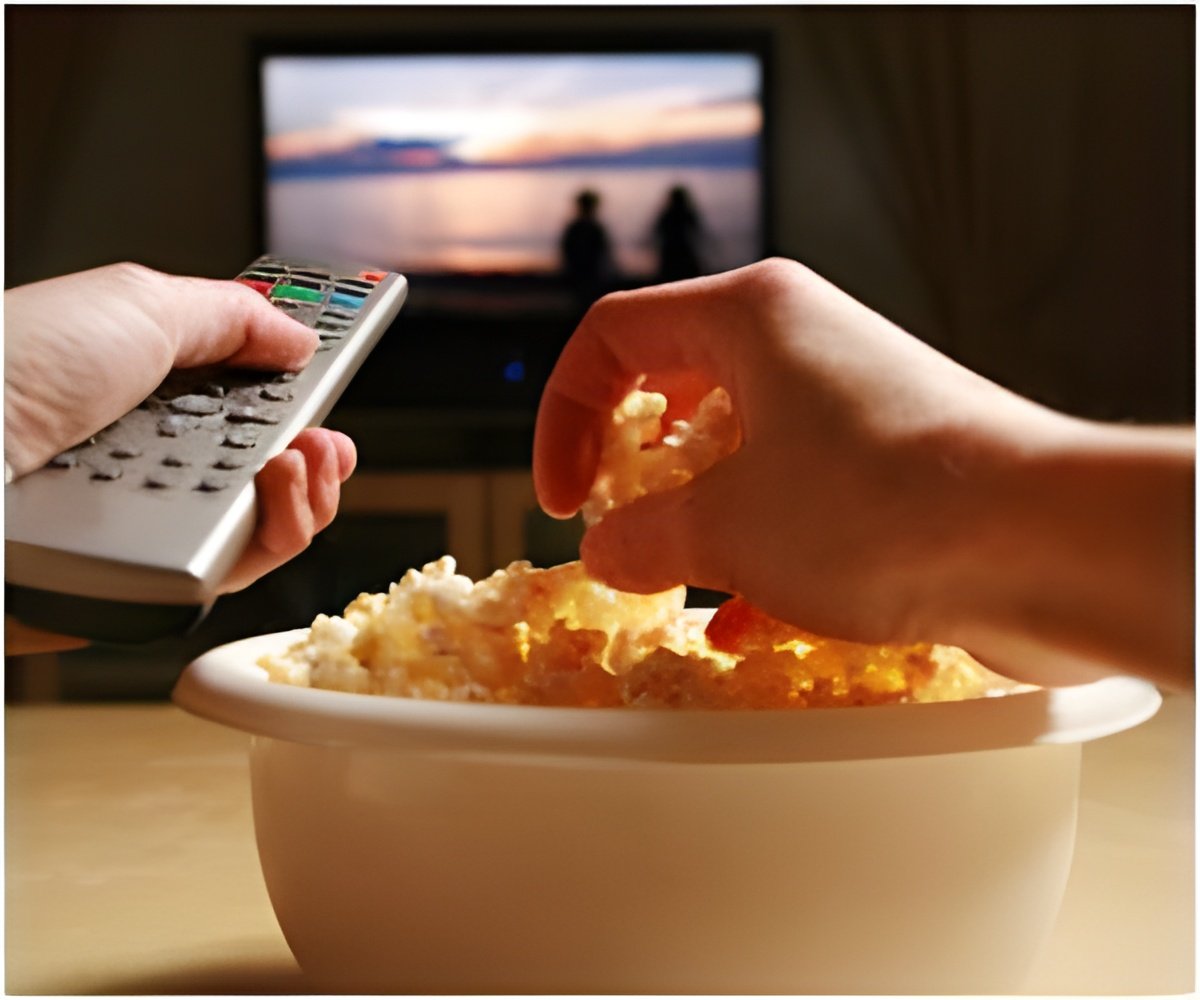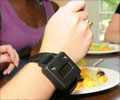
The authors examined how objective technical characteristics, such as the frequency of visual camera cuts or variations in sound, might influence how much food is eaten. Their study, which was highlighted in a research letter, included 94 undergraduate students (57 female; mean age nearly 20 years). They gathered in groups to watch 20 minutes of TV and were randomly assigned to 1 of 3 different programs: an excerpt from "The Island," a Hollywood action movie starring Ewan McGregor and Scarlett Johansson, the interview program "Charlie Rose," or the identical excerpt from "The Island" but with no sound. Viewers had M&Ms, cookies, carrots and grapes to snack on while watching. The snacks were weighed before and after the program to track how much viewers had eaten.
Viewers watching the more distracting program "The Island," with its high camera cuts and sound variation, ate 98 percent more grams of food (206.5 vs. 104.3 g) and 65 percent more calories (354.1 vs. 214.6) than viewers who watched "Charlie Rose." Even viewers of the silent version of "The Island" ate 36 percent more grams of food (142.1 vs. 104.3g) and 46 percent more calories (314.5 vs. 214.6) than "Charlie Rose" viewers.
"More distracting TV content appears to increase food consumption: action and sound variation are bad for one's diet. The more distracting a TV show, the less attention people appear to pay to eating, and the more they eat."
Source-Eurekalert












